Microplastics and their effects on the human body

Professor of Respiratory Immunology Barbro Melgert studies the effect of microplastics on the lungs. ‘I thought they wouldn’t have any effect, but they did.’ Since 2004, we know about the existence of microplastics: they are everywhere, and they potentially have many negative effects on our bodies. Melgert demonstrates the effect of microplastics on the lungs and explains how to minimize their effect. This is the last of four articles on plastic research at the UG.
FSE Science Newsroom | René Fransen
Melgert studies the response of our lungs to the different substances we inhale. In 2018, she received a grant to study the effect of microplastics on the lungs. ‘At the time, I knew very little about microplastics. I was relatively late to the game; microplastics were first identified as a problem in 2004, although back then, people mainly worried about their negative effects on marine life.’
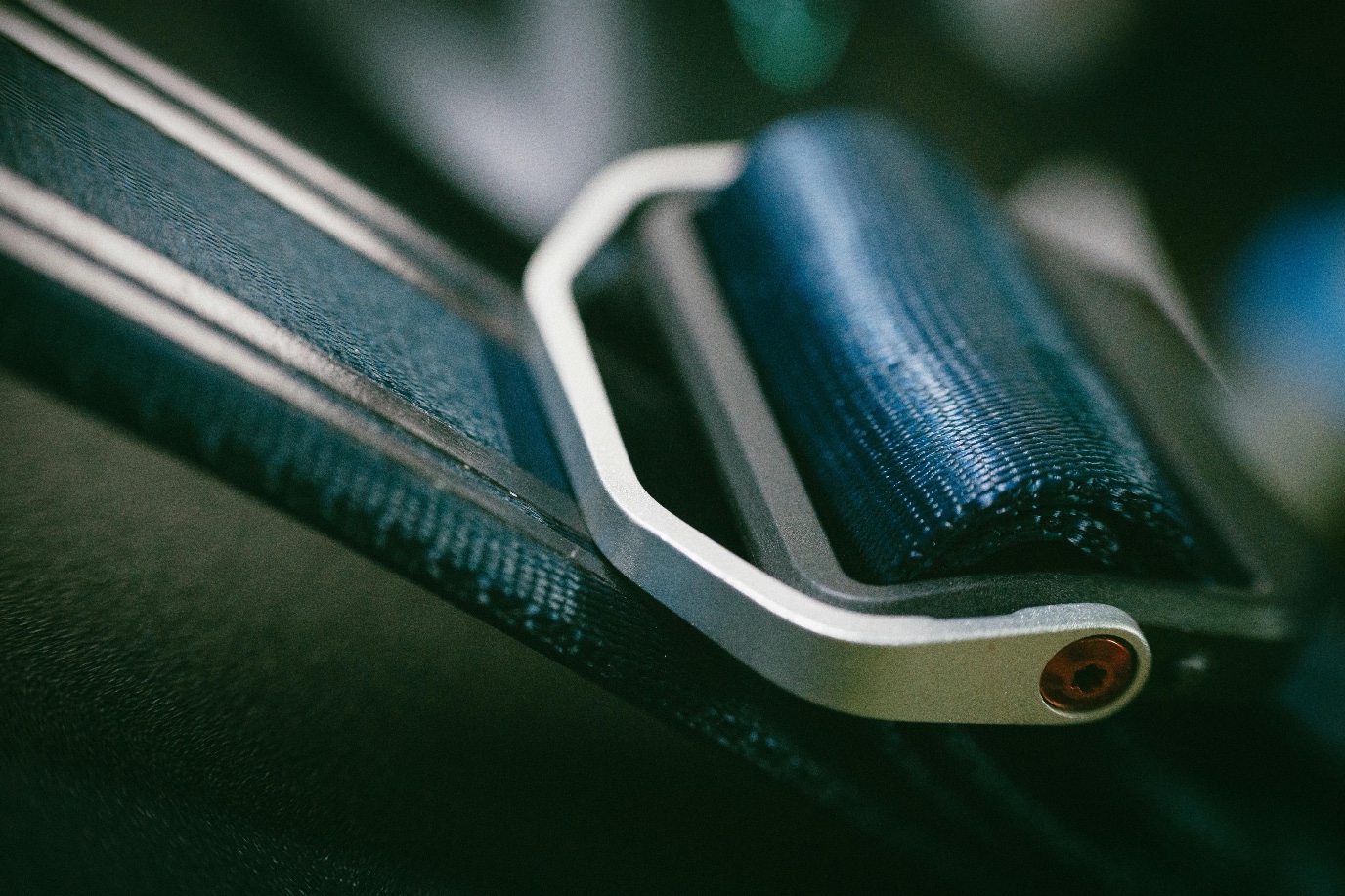
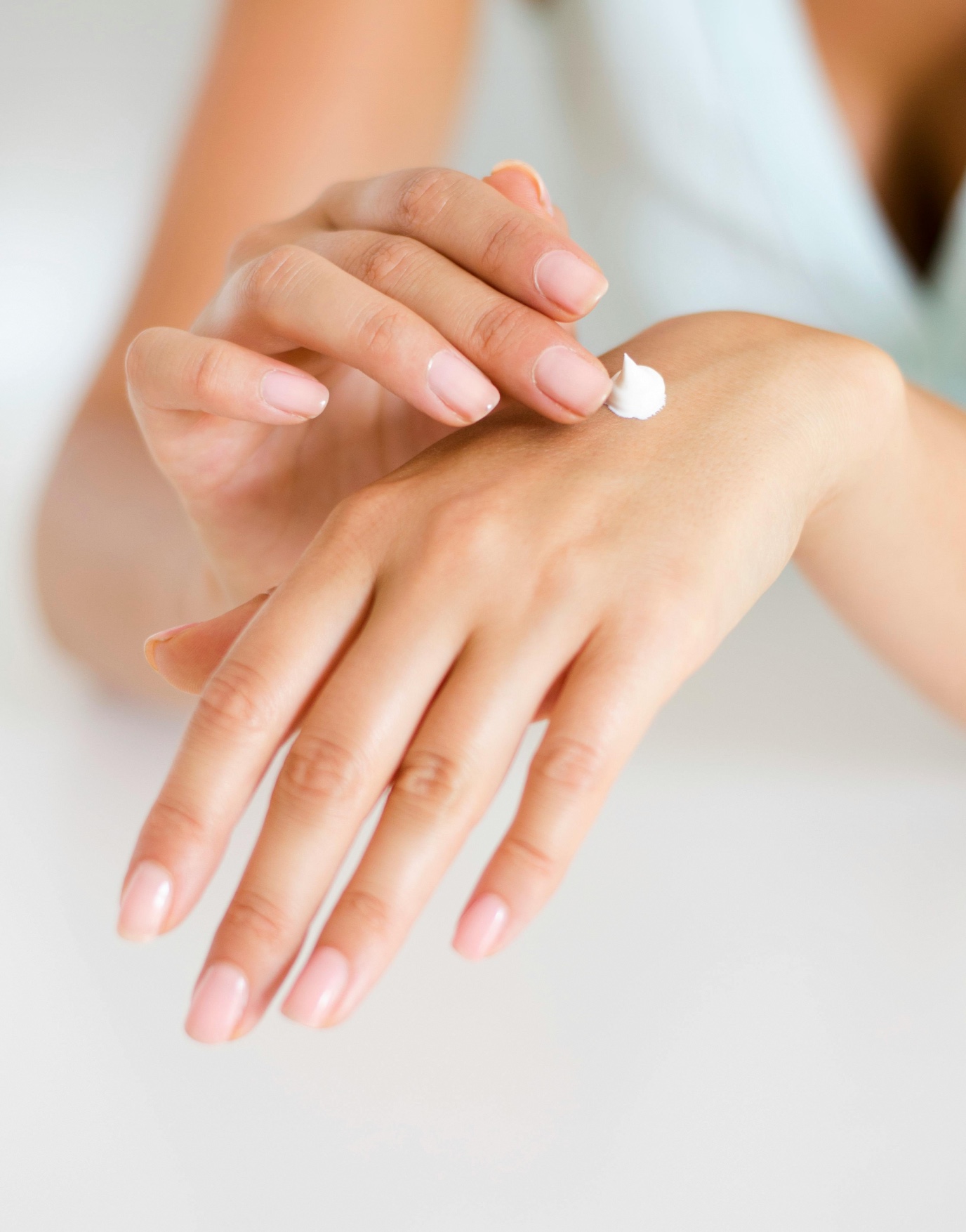
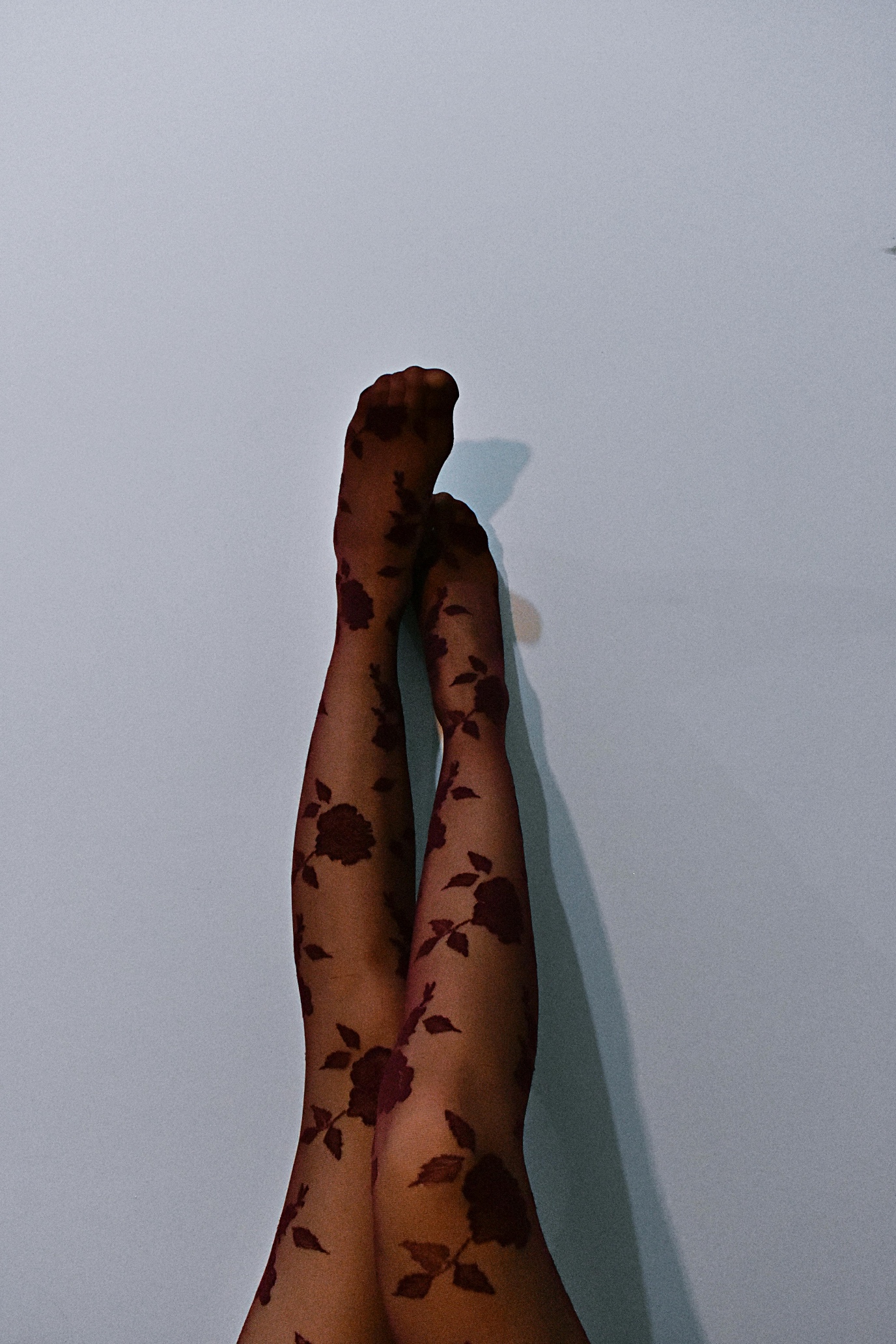
These days, we know that microplastics are mostly found in our homes, especially in well-insulated modern houses. Microplastics are tiny particles of plastic, varying in size from microscopic to a few millimetres. Some are small fragments of synthetic clothing fibres or polyester carpets, and are also added to cosmetics, for example, as abrasives in facial scrubs.
The discovery of microplastics
In 2004, British marine biologists published the article ‘Lost at sea: Where is all the plastic’ in the scientific journal Science. They described the ocean as being filled with tiny plastic fragments and expressed their concern about their danger. The article concludes with a warning: ‘There is the potential for plastics to adsorb, release, and transport chemicals. However, it remains to be shown whether toxic substances can pass from plastics to the food chain. More work is needed to establish whether there are any environmental consequences of this debris.’ In other words, the authors worried about the potential poisonous effects of microplastics on fish and on those who eat fish.
Since the publication of this first paper, microplastics have been found everywhere on the planet and in our bodies, even in the brain and the placenta. Scientists have also identified nanoplastics, which are plastics smaller than 0.001 millimetre. There are many signs of their negative impact on the environment, as well as the danger they could pose to our health. However, as there are many different types, it is hard to determine the exact effect of microplastics.
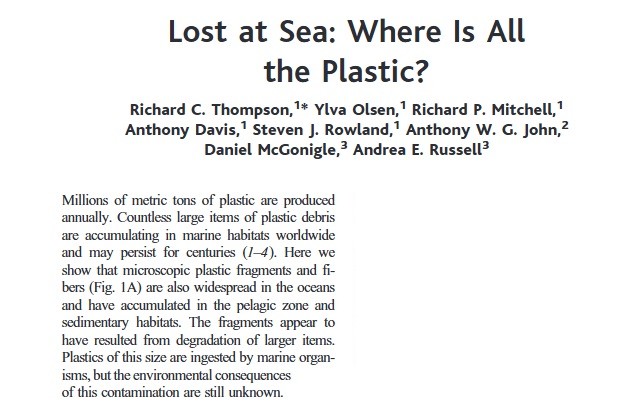
Microplastics in miniature lungs
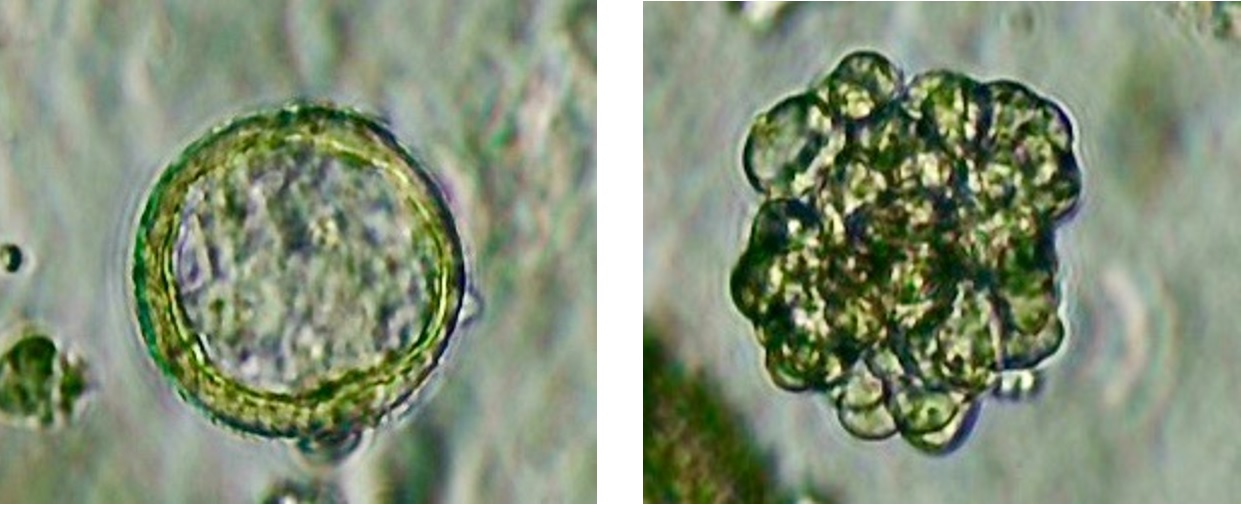
Melgert tested microplastics in miniature lung models she grows from lung stem cells. ‘I examined polyester and nylon microplastics, as these are often present in homes.’ She did not expect much of the experiment: ‘I thought they wouldn't have any effect, but they did.’ The results were obvious: nylon had a visible effect on the development of the airways, while the alveoli, the ‘air sacs’ that absorb oxygen and release carbon dioxide, seemed to be hardly affected.
The results suggested that some toxic substance was leaching from the nylon microplastics. ‘However, the producers denied they contained any additives.’ There are several ways in which the nylon could have been contaminated, for example during the production process or by absorbing pollutants during use. ‘And when plastics are recycled, it is impossible to verify the source material.’

Melgert and her team were able to discover the way this mystery contamination affects the lungs: it appears to stimulate something called the retinoic acid receptor in the cells. ‘However, it is extremely difficult to establish which substance causes the effect. Testing all the unknown substances in microplastics is like looking for a needle in a haystack.’ On top of that, the mini-lungs used in her experiments take time to grow and are expensive to use. ‘We are working on a faster and cheaper screening method.’
Mini-lungs
Melgert uses so-called lung organoids, mini-lungs grown in the lab using lung stem cells — cells that the body uses to renew tissue. Lung stem cells can grow into different cell types, for example into cells of the airways or of the alveoli. Through a process called differentiation, stem cells take one of those routes. Melgert’s experiments with nylon microplastics revealed that the differentiation process towards airway cells is disturbed by these microplastics.
Most of the research on microplastics is aimed at identifying where they are found, rather than identifying their effects.
Too many plastics
To paint a picture of what Melgert and her colleagues are up against: some 13,000 different additives to plastics have been described. Roughly half of those could have a negative effect on our health. ‘However, most of the research on microplastics is aimed at identifying where they are found, rather than identifying their effects and—more importantly—how they are achieved.’ Another problem is that it is difficult to compare studies on microplastics: there are many types of plastics, and the same types may even contain different additives.
To tackle this, the Dutch government funded a national programme called MOMENTUM (https://momentummicroplastics.nl) through ZonMW. In this programme, all participating Dutch scientists study plastics that we know are present in the environment and which can have an effect on our health: polyvinyl chloride, polyethylene, polyethylene terephthalate, and nylon.
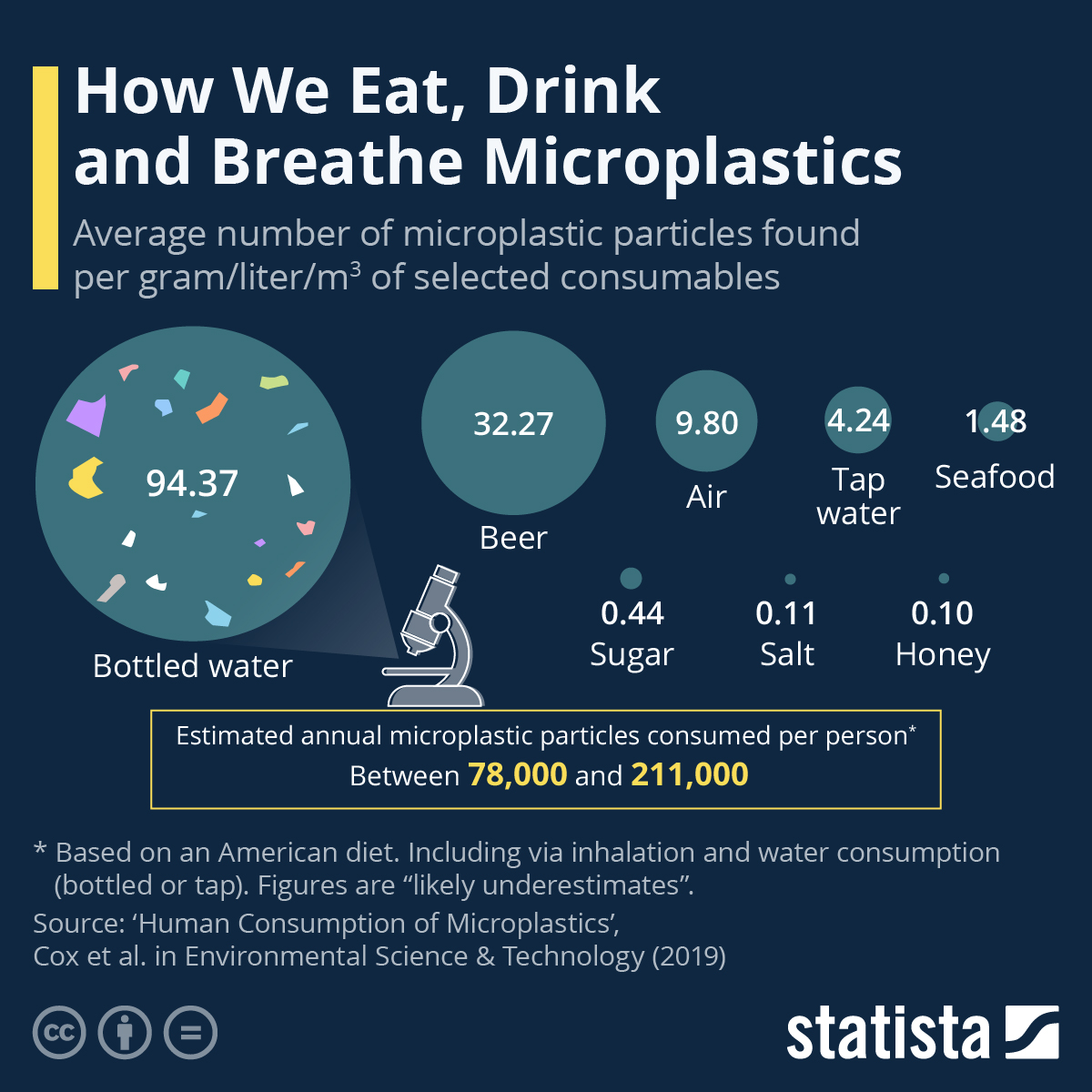
Melgert: ‘We use the same microplastic particles in all our studies.’ The project started in 2021 and is currently in its final phase. Its results will appear later this year, hopefully revealing some of the ways in which these microplastics affect our health. Environmental psychologists are also involved in this project to assess people’s knowledge about microplastics and the way people can change their behaviour to minimize the production of and exposure to microplastics.
Microplastics in your washing machine
Microplastics are created by the abrasion of plastic objects. When washing clothes made of synthetic fabrics, you can reduce the production or microplastics in several ways. One way is to fill up the washing machine, as this reduces friction. Using washing powder also increases friction, so it is better to use a liquid formula. Finally, washing at lower temperatures further reduces the production of microplastics.

Don’t buy cheap plastic items that can’t be reused or repaired, or any fast fashion.
Microplastics in our homes
In the end, exposure to microplastics is a problem caused by us and our consumption patterns. ‘To reduce exposure, I stopped using plastic containers to store or microwave food,’ says Melgert. She also recommends regularly vacuuming your house and airing the rooms. ‘Also, don’t buy cheap plastic items that can’t be reused or repaired, or any fast fashion, as these clothes are more prone to pilling.’ But in general, we should use less plastic. ‘I also believe there should be laws in place to make sure that we know what components have been used in plastic production.’
Last month, Barbro Melgert received a grant from the ZonMW Open Competition, for the project ‘Are microplastics an environmental cause of lung cancer?’
This is the final article in a four-part series on plastic research at the Faculty of Science and Engineering, see below.
| Published on: | 22 April 2025 |
In the coming weeks the nominees for the Ben Feringa Impact Award 2025 will introduce themselves and their impactful research or project. This week: Noor Swart and Berend Roorda, on their online information initiative on the right of freedom to assembly, demontratierecht.nl
| Published on: | 22 April 2025 |
In the coming weeks the nominees for the Ben Feringa Impact Award 2025 will introduce themselves and their impactful research or project. This week: Makke Marij Bakker, Annika Zweep, Adriaan Beelaerts van Blokland & Lisette Kamping nominated for their project Collective Memory Dialogue Cards.
| Published on: | 22 April 2025 |
The ferocity with which Donald Trump is eroding American democracy may seem unprecedented. Presidents have used their power to issue executive orders in the past, but not at the pace set by Trump. What if the US is less democratic than we think?
| Published on: | 22 April 2025 |
The University of Groningen as we know it now is more than the Academy Building alone. In this series, based on the podwalk and the booklet In het spoor van de Academie (in Dutch only), we are putting a spotlight on various buildings—and a work of art—of the UG and their histories. In this episode: the Munting Building.
| Published on: | 22 April 2025 |
The new podcast Open Science Bites by the University of Groningen showcases open practices in a to the point and engaging way.
| Published on: | 22 April 2025 |
How can we all become less dependent on Big Tech? A topical and urgent question that is also arising within the University. Recently, a petition by a group of staff members made the rounds that called for the University to break away from Google and Amazon. Peter van de Waerdt obtained his PhD in November last year on this very subject. The significant title of his thesis: Data is power.
| Published on: | 21 April 2025 |
Some things are so obvious that you wonder why they did not exist before. The website demonstratierecht.nl (freedom of assembly) is one of those things. The website is developed by associate professor Berend Roorda and PhD student Noor Swart and collects all the information on the right to freedom of assembly.
| Published on: | 17 April 2025 |
The University of Groningen (UG) and the UMCG participate in a national open access agreement with the publisher PLOS. The agreement applies to seven journals. All publication types are covered under the agreement. The deal has different financial implications for UG and UMCG authors
| Published on: | 15 April 2025 |
The University of Groningen will receive nearly 1.5 million euros in funding from the Province of Groningen to assist entrepreneurial academic researchers in developing innovative ideas into a startup.
| Published on: | 15 April 2025 |
For her pioneering research on molecular systems, Nathalie Katsonis receives the Ammodo Science Award for fundamental research 2025.
| Published on: | 15 April 2025 |
Nathalie Katsonis has won the Ammodo Science Award for Fundamental Research. She develops adaptive molecular materials and studies the chemical origins of life, which in turn yield insights for vaccines and clearing up oil spills at sea.
| Published on: | 15 April 2025 |
Impact gaswinningsproblemen op Groningers: negatieve ontwikkeling zet niet door, maar meerdere keren schade blijft een punt van zorg
| Published on: | 15 April 2025 |
Two student teams from the University of Groningen and Hanze University of Applied Sciences will test two self-built mini-satellites in the municipality of Oldambt on April 24.
| Published on: | 15 April 2025 |
On 16 April 2025, the Faculty of Law at the University of Groningen will launch the first episode of its podcast The Right to News (in Dutch: Recht op Nieuws). The theme of the first episode is: “Can the government just ban organizations in the future?”
| Published on: | 15 April 2025 |
Our data usage is at an all-time high. But concerns regarding our online presence are on the rise. Who governs the spaces we access online and how do they do this? How can government regulations help manage the consequences of their decisions for the privacy and safety of internet users? These are central questions to the research topics of Oskar Gstrein, associate professor of Human Dignity in the Digital Age.
| Published on: | 14 April 2025 |
Edita Jurak is looking for bacteria and their enzymes that can help us recycle plastics and clean up the environment.
| Published on: | 14 April 2025 |
Paolo Pescarmona designs and builds catalysts, for example to turn carbon dioxide into polymers.
| Published on: | 14 April 2025 |
Three ENW-M grants from the Netherlands Organization for Scientific Research (NWO).
| Published on: | 11 April 2025 |
Transforming Interaction: A Workshop on AAC, Social Robotics, and Conversational AI
| Published on: | 10 April 2025 |
The Netherlands has plans to invest in an AI Factory, with financial support from Europe and the region. This initiative is an important step to further strengthen the region and the country in the field of artificial intelligence (AI).
| Published on: | 08 April 2025 |
The UG hosts its own 'Science Space' during this year's Liberation Day Festival. Researchers are invited to share their research with a broad audience. Think of 10-minute flash lectures, short films, mini-workshops, live demonstrations, art installations, and more.
| Published on: | 08 April 2025 |
180 participants from 18 different countries, 55 different organizations and 50 educational institutions. On 27 and 28 March, the University of Groningen hosted the ENLIGHT IMPACT Conference where researchers, policy makers and industry came together to look at how to create meaningful impact and break down the walls between science and society.
| Published on: | 08 April 2025 |
Annual gas savings equal consumption of 1300 Groningen households
| Published on: | 08 April 2025 |
The University of Groningen as we know it now is more than the Academy Building alone. In this series, based on the podwalk and the Dutch booklet In the footsteps of the Academy, we will put the spotlight on various buildings—and a work of art—of the UG and their history.
| Published on: | 08 April 2025 |
Opening hours UB Good Friday, Easter, King's Day
| Published on: | 07 April 2025 |
Scientists at the University of Groningen are working on new ways to recycle plastic waste into new, high-quality products.
| Published on: | 07 April 2025 |
More than half of all adult women is dealing with urinary incontinence, and a quarter of them are severely hindered by it. UG researcher Anne Loohuis developed a science-based app offering information and exercises. This also saves a lot of money.
| Published on: | 07 April 2025 |
De Universiteit van Nederland deelt een aflevering met econoom Sandra Phlippen van de RUG. In deze aflevering legt ze uit hoe belangrijk wereldhandel is, wat de basisprincipes zijn van een goed fundament hiervoor en hoe importtarieven de boel kunnen verstoren.
| Published on: | 07 April 2025 |
Prof. Marleen Kamperman and Marijke Leliveld received EUR 100,000 from the Gratama Foundation for their research project aimed at producing organic textiles for sustainable fashion.
| Published on: | 03 April 2025 |
The symposium ‘From Underground to Mainstream’ will bring together experts, stakeholders, and researchers from various disciplines to explore the role of the underground in the energy transition. The event is scheduled for 9 April.
| Published on: | 03 April 2025 |
Will you write the best essay in Dutch on the theme ‘AI and culture’? Then you are the winner of the Gerrit Krol Award 2025! The Language Centre and the Dutch Language and Culture programme of the University of Groningen are organising this fourth edition of the Gerrit Krol Award. Students from all universities and universities of applied sciences in the Dutch language area can participate.
| Published on: | 03 April 2025 |
Prof. Tamalika Banerjee’s startup IMChip and Prof. Erik Frijlink and Dr. Luke van der Koog’s startup MimeCure have made it into the top 10 of the national Academic Startup Competition.
| Published on: | 02 April 2025 |
The University of Groningen (UG) obtained high scores in a reputation study of Dutch universities, carried out by market research agency Markteffect. The Dutch secondary school pupils who participated gave the University above average scores on all researched degree choice aspects.
| Published on: | 01 April 2025 |
The new voting system, proposed by minister Uitermark, could jeopardize the fundamental principle of proportional representation, says Davide Grossi, Professor of Collective Decision Making and Computation at the University of Groningen
| Published on: | 01 April 2025 |
In addition to her biological research on ageing, Hannah Dugdale also studies disparities relating to diversity in science. Thanks to the latter, she is one of the two 2024 laureates of the Athena Award, an NWO prize for successful and inspiring female researchers who are role models for others. “Diversity in your research group actually improves the quality of the science.”
| Published on: | 01 April 2025 |
Academic leads from the Risk, Crises, and Resilience (RCR) theme of the Rudolf Agricola School for Sustainable Development met to brainstorm on the theme, its core content, and the principles that will guide their collective work. They used compelling metaphors from art, nature, and sports to frame their insights.
| Published on: | 01 April 2025 |
Starting 1 September, participants enrolled in the programme will receive a master's degree from both the University of Groningen and Vrije Universiteit Amsterdam upon successful completion.
| Published on: | 01 April 2025 |
Professor Ming Cao receives an ‘AiNed’ Growth Fund grant of EUR 2.4 million for research that will contribute to faster adoption of AI at SMEs in the technical industry in the Netherlands.
| Published on: | 01 April 2025 |
According to the independent Keuzegids Masters 2025, the Executive MBA of the University of Groningen Business School is the best rated MBA in the Netherlands (both part-time and full-time programmes).
| Last modified: | 22 April 2025 09.43 a.m. |
More news
-
15 April 2025
1.5 million funding from Province of Groningen for innovative technology in the region
The University of Groningen will receive nearly 1.5 million euros in funding from the Province of Groningen to assist entrepreneurial academic researchers in developing innovative ideas into a startup.
-
15 April 2025
Nathalie Katsonis wins Ammodo Science Award 2025
For her pioneering research on molecular systems, Nathalie Katsonis receives the Ammodo Science Award for fundamental research 2025.
-
15 April 2025
Fundamental research with life-size effects
Nathalie Katsonis has won the Ammodo Science Award for Fundamental Research. She develops adaptive molecular materials and studies the chemical origins of life, which in turn yield insights for vaccines and clearing up oil spills at sea.
